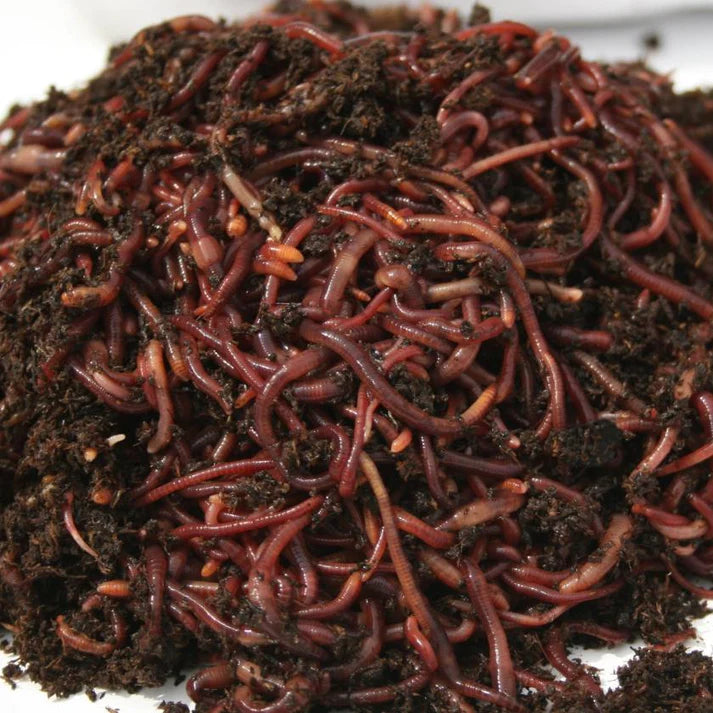7 Easy Facts About Red Wiggler Express Described
7 Easy Facts About Red Wiggler Express Described
Blog Article
Getting My Red Wiggler Express To Work
Table of ContentsUnknown Facts About Red Wiggler ExpressSome Known Questions About Red Wiggler Express.Not known Facts About Red Wiggler Express4 Simple Techniques For Red Wiggler Express
With the worldwide press for sustainability and with environmentally friendly methods expanding in popularity, people are ultimately coming around and acknowledging the ecological advantages of red wiggler worms and composting. In this write-up, we'll review just how vermicomposting supports lasting horticulture and the ecological benefits of red wigglers and other earthworms.
This is the short of it. If you wish to check out in-depth about red shakes, we have an entire post committed to them right here. Now, allow's get involved in the nuts and bolts of exactly how these worms sustain sustainable gardening methods and profit the setting: Worm composting is like a health club day for your soil.
When integrated into your garden soil, these castings boost its framework, aeration, and water retention. This assists with plant development and wellness and does not call for the use of any chemicals. Did you understand that natural waste makes up a considerable part of land fill product?
By diverting your kitchen scraps and lawn waste right into a worm composting bin, you're successfully minimizing the amount of natural waste that finishes up in landfills. It's a win-win situation for your yard and the planet. Forget chemical plant foods worm castings are the actual offer. They're chock-full of necessary nutrients like nitrogen, phosphorus, and potassium.
Things about Red Wiggler Express

Maintain the bin in an amazing, dubious spot to prevent getting too hot. Mix the nutrient-rich worm castings into your yard dirt or use them as a top dressing for potted plants. You'll observe much healthier, happier plants in a snap! It really is as basic as that. In a globe where sustainability is ending up being increasingly vital, red wigglers shine as unsung heroes of horticulture.
Composting might look like old news, yet doing it with a bin complete of worms probably doesn't. Red wiggler worms offer excellent benefits to the natural garden enthusiast, creating both a natural fertilizer and an effective pesticide. And they eat your kitchen area scraps. The worth of red wigglers, a.k (Worm Farms Near Me).a. Eisenia fetida, lies in their waste matter, recognized as worm spreadings.
Worm spreadings may be acquired at shops such as SBS in Winery Place or Winery Gardens in West Tisbury, however to raise the worms in a garden compost bed and harvest your own spreadings is far more enjoyable. The job of these worms is an aspect of lasting living. Red wigglers are native to steed manure, where they burrow to lay eggs.
What Does Red Wiggler Express Do?
(https://www.interesting-dir.com/details.php?id=389130)He covers the bin with straw, after that a piece of old rug. Lynn discusses the production of castings and two usages: as a fertilizer and as a pesticide. It passes through them and includes calcium to make this rich earth," she claims.
"We call it gold tea," says Lynn. "I did it to see if it would make a distinction on white flies and aphids. My rosemary had a mold and mildew or fungi. After I sprayed, promptly it looked far better." The red wiggler is a prodigious dog breeder, laying eggs as commonly as once a week.
It takes three to five months for an infant worm to reach sex-related maturity and the adult size of 3 inches. Their lifetime is four to five years unless of course they are made use of for lure. As freshwater fish lure, wigglers agonize responsible and endure underwater longer than conventional earthworms.

As one of the Epigeic class of garden compost worms, the typically does not appear in dirts. The worm is red or reddish-brown in shade and has a smooth, cylindrical form.
A red wiggler worm can grow up to four inches in length yet is usually just concerning 2 and a fifty percent inches. The worm has a little mouth located at the front of its head. It additionally has small bristles, called setae, which assist the worm relocation and anchor itself to surface areas.

Report this page